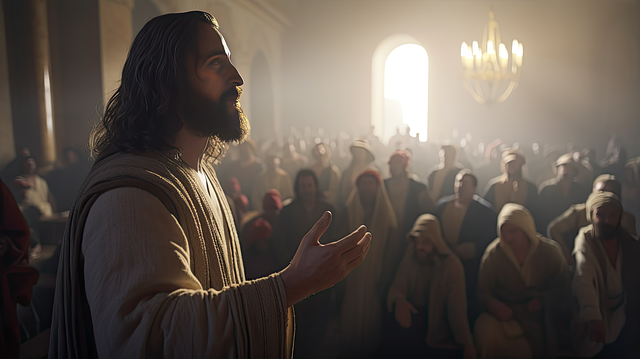
The existence of Jesus of Nazareth, a central figure in Christianity, has been the subject of intense debate and research for centuries. While the story of Jesus is primarily a matter of faith for millions of believers worldwide, many scholars and historians have attempted to gather historical evidence of his existence. In this article, we will examine some of the most commonly cited pieces of evidence to support the existence of Jesus.
1. The New Testament Writings
The Gospels of the New Testament, written by disciples and early Christians, are the most direct source of Jesus' history. The Gospels of Matthew, Mark, Luke, and John recount the life, teachings, and miracles attributed to Jesus. While these texts have a spiritual and theological dimension, they are also considered historical documents by many scholars.
2. Extrabiblical Testimonies
In addition to the Gospels, some extrabiblical writings also mention Jesus. The famous Jewish historian Flavius Josephus, in his work "Antiquities of the Jews" from the first century, references Jesus as the leader of a sect called the Christians. The writings of the Roman historian Tacitus, dating from the early 2nd century, also allude to Jesus and the persecution of Christians under Emperor Nero.
3. Pauline Letters
The letters of the apostle Paul, written in the mid-1st century, contain references to Jesus and his crucifixion. These letters are considered the earliest known Christian writings and provide evidence of Jesus' existence in the decades following his life.
4. Archaeological Evidence
While direct archaeological evidence of Jesus's life is scarce, some discoveries have corroborated aspects of the biblical narrative. For instance, excavations have revealed remnants of the ancient town of Nazareth, confirming its existence as the presumed birthplace of Jesus.
5. Testimonies of the Church Fathers
The Church Fathers, such as Clement of Rome, Ignatius of Antioch, and Irenaeus of Lyon, wrote during the early centuries of the Christian Church and testified to the existence of Jesus as a central figure of their faith.
However, it's important to note that the existence of Jesus remains a debated question among scholars, partly due to the lack of direct contemporary evidence. Some critics argue that historical references to Jesus could have been altered or forged over time.
The question of Jesus's existence remains, for many, a matter of faith rather than an undisputed historical conclusion. Believers find their primary evidence in their religious and spiritual experiences, while historians continue to explore and debate textual and archaeological evidence to further illuminate our understanding of this charismatic and influential figure in history.
MerandaDevan, Pixabay, https://pixabay.com/illustrations/ai-generated-christianity-8029311/


0 comments: